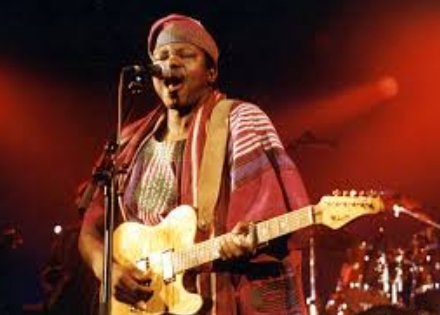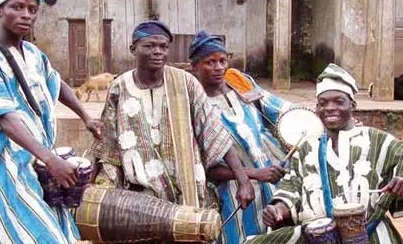
support@yorubalibrary.com
+2348073529208, 07038599574

Yoruba songs serve as a vital tool for preserving the rich linguistic diversity within the Yoruba culture. As a form of oral tradition, these songs capture the essence of various dialects, ensuring their survival for future generations. This article explores how Yoruba songs play a crucial role in preserving dialects, fostering cultural continuity, and enhancing linguistic heritage.
The Importance of Yoruba Dialects
Yoruba is a language spoken by millions of people across West Africa, with numerous dialects reflecting the region's rich cultural and historical diversity. Each dialect carries unique linguistic features, expressions, and cultural nuances, contributing to the richness of Yoruba identity. The Yoruba language comprises several dialects, including Oyo, Egba, Ijebu, Ekiti, and others. These dialects vary in pronunciation, vocabulary, and syntax, reflecting the cultural diversity of different Yoruba-speaking regions.
Cultural Significance
Dialects are an essential part of cultural identity, encapsulating the history, values, and traditions of the communities that speak them. Preserving these dialects is crucial for maintaining the cultural integrity and continuity of the Yoruba people.
The Role of Songs in Preserving Dialects
Yoruba songs serve as a powerful medium for preserving dialects, capturing their unique linguistic features and expressions. Through music, dialects are passed down from generation to generation, ensuring their survival in an ever-changing world.
Yoruba songs are rooted in oral tradition, serving as a vehicle for storytelling and cultural transmission. Songs often incorporate proverbs, idioms, and expressions unique to specific dialects, preserving linguistic diversity and cultural knowledge.
• Example: Folk Songs
Traditional Yoruba folk songs often feature dialect-specific expressions, capturing the linguistic richness of different regions. These songs are used to tell stories, convey moral lessons, and celebrate cultural heritage.
Celebration of Regional Identity
Yoruba songs celebrate regional identity by incorporating dialect-specific elements that reflect the culture and traditions of various Yoruba communities. This celebration fosters a sense of pride and belonging among speakers of different dialects.
• Example: Praise Songs
Praise songs honor individuals, families, and communities, often using dialect-specific language to highlight regional identity and cultural achievements.
Modern Influences and Adaptations
As Yoruba music evolves, contemporary artists continue to draw on traditional dialects, adapting them to modern contexts and genres. This fusion of traditional and modern elements ensures that dialects remain relevant and accessible to younger generations.
Contemporary Yoruba Music
Modern Yoruba musicians incorporate dialects into their lyrics, blending traditional linguistic elements with contemporary styles such as Afrobeats, hip-hop, and reggae. This adaptation keeps dialects alive and appealing to a global audience.
• Example: Afrobeats
Afrobeats artists often use dialect-specific expressions and slang, creating a unique linguistic and cultural identity that resonates with both local and international audiences.
Digital Platforms and Media
Digital platforms and social media have expanded the reach of Yoruba music, allowing dialects to be shared and celebrated worldwide. Online music streaming services, YouTube, and social media platforms provide a space for artists to showcase their work and connect with diverse audiences.
While Yoruba songs play a vital role in preserving dialects, challenges remain in maintaining linguistic diversity in the face of globalization and language homogenization. However, opportunities exist to leverage technology and media to promote dialect preservation and cultural continuity.
Language Homogenization
The dominance of standardized languages and global media can threaten the survival of smaller dialects, leading to language homogenization. Efforts are needed to promote the use of dialects in education, media, and everyday communication.
Cultural revival initiatives and educational programs can support dialect preservation by encouraging the teaching and learning of Yoruba dialects in schools and communities. By fostering linguistic awareness and appreciation, these efforts contribute to the preservation of Yoruba cultural heritage.
Conclusion
Yoruba songs are a powerful tool for preserving dialects, capturing the linguistic diversity and cultural richness of Yoruba society. Through the oral tradition, storytelling, and modern adaptations, Yoruba songs ensure that dialects remain an integral part of the cultural heritage. By celebrating and preserving these dialects, Yoruba music continues to play a crucial role in maintaining cultural identity and fostering linguistic diversity for future generations.

The unique styles of Yoruba Bata and Dundun dances…

The emergence of new age social media and impact i…